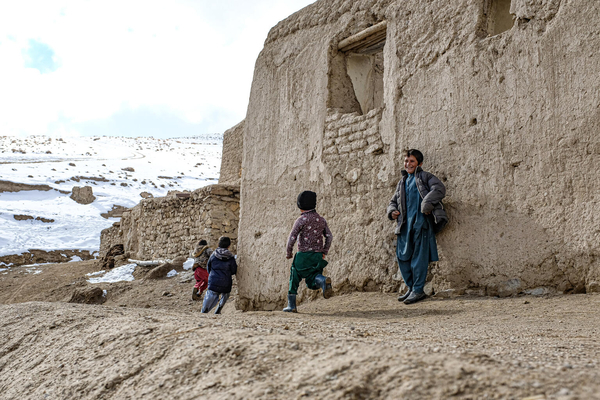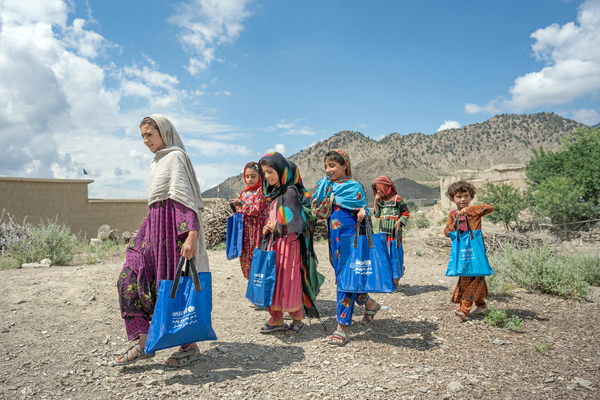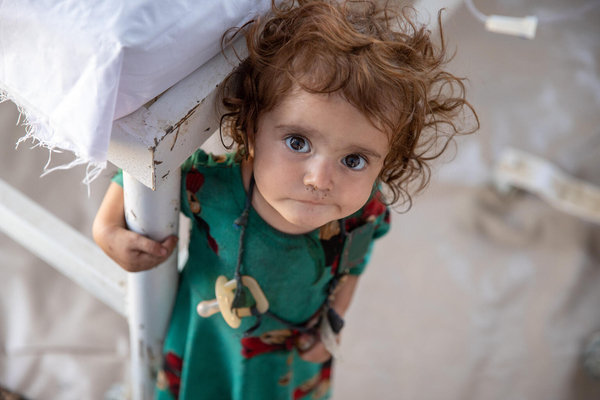A four-headed decision making challenge in a pressure cooker

Angelien Eijsink was defense spokeswoman for the PvdA (Dutch Labor Party) in the House of Representatives for 14 years (2003 to 2017). She was closely involved in the parliamentarian decision-making process of the first Dutch mission in Afghanistan, as in the missions that followed. Angelien Eijsink visited Afghanistan several times between 2004 and 2016, and she was one of the interviewees for the report “Balancing between ambition and wishful thinking: Learning from 20 years of Dutch involvement in Afghanistan”. KUNO asked her to reflect on the main findings of the study.
In response Angelien Eijsink immediately pointed at a four-headed decision-making challenge, which also became apparent in the KUNO booklet: knowledge, time, risk & responsibility. There is commonly a call to take responsibility, but the risks involved in the decisions to be made are considerable. However, there is also a need to respond quickly, but the available knowledge on the topic (and the potential effects of different options on the table) is usually very limited. The moment a crisis emerges, political decision-makers are confronted with these four challenges, which could intervene (or are very likely to intervene) in unknown ways. Angelien Eijsink: “This was not only visible in the case of Afghanistan, but also for example now in Ukraine. We must realise that not all knowledge is available to limit risks, nor that the future can be predicted. Yet the Netherlands is expected to act, within a complex international context (e.g. in Afghanistan, after an ally was attacked and invoked Article 5). Thus, it is about making choices in a context of the challenging conditions of knowledge, time, risk & responsibility.”
We simply do not know what we do not know
Angelien Eijsink expressed that perhaps another chapter could have been added to the booklet: incomprehensible issues or issues about which there is hardly any knowledge. A crisis often comes unexpectedly which implies knowledge is usually very limited. E.g. when Russia invaded Ukraine or at the time the Twin Towers were brought down, most of us involved, including parliamentarians, had very limited knowledge on Ukraine or Afghanistan. Previously there was no need to delve into these issues. Moreover, and perhaps more importantly: when a crisis emerges, it is simply not known how things will develop in the future. For politicians it appears difficult to deal with these kinds of uncertainties or to articulate these uncertainties. Both in politics and in policy documents, you regularly see that it is not crystal clear that decisions have to be made on the basis of limited knowledge. Angelien Eijsink: “Then words like ‘maybe’ or ‘possibly’ are used. Often you can then simply say ‘we don’t know’.” That is why Angelien Eijsink wonders if we – in political The Hague and beyond – can just accept that we cannot know in advance that what we do is ultimately the right thing. We cannot have all the knowledge. A positive, but rare, example of a political decisionmaker that was willing to be open and transparent about these kind of uncertainties was Minister Henk Kamp (Defence, VVD), who simply indicated in Parliament that he could not know what could not yet be known.

Zeitgeist
Another element Angelien Eijsink highlighted and is often not getting enough attention in evaluations is the element Zeitgeist: “In hindsight, it is often easy to judge about taking responsibility; in hindsight it is easy, you know how the story ends.” You can only take responsibility for choices made in a specific moment, usually taken under time pressure and with limited knowledge. Naturally, there is an obligation to be as informed as possible making those decisions, yet it is important to realise that the spirit of that time was different. In the case of Afghanistan, the aftermath of 9/11 played a big role, as did the attacks in London and Madrid. These also had a huge impact in the Netherlands. We felt that we should also contribute to the fight against terrorism, also considering that, unlike our allies, we had not yet been hit by a major attack. Needless to say, we all had no idea how long that could take. Another example Angelien Eijsink shared was the COVID-19 crisis: “That is less than only two years ago, and it feels far-far away. Do we really remember the enormous uncertainty in society? Teachers that feared to teach. Parents that did not want their kids to go to school. Do we remember the impact this had on the political decision-making process? In hindsight it is easy to judge about the political decision makers, but please take also into account the Zeitgeist and do not underestimate the impact of the zeitgeist on a political process.”
Trust the professionals
Also, the trust political decision-makers should have in professional implementers, which is touched upon in the booklet, is an issue Angelien Eijsink would like to stress. Eijsink: “Of course, politicians have the task to decide on the goal of a mission. Once the mandate is there, ‘The Hague’ should rely on the professionalism of practitioners. During a mission, dilemmas do occur: the consequences of an intervention (e.g. the bombing of a military target) could have a bigger impact (e.g. on civilian infrastructure) than foreseen. If this occurs, it should be the call of the professionals in the field (in this example the military) to proceed or not proceed with the intervention. And, of course, they should be able to explain afterwards.” During the missions in Afghanistan, however, there was a tendency for the politicians remain involved within operational decision-making structures. Angelien Eijsink: “This is not workable for professionals, certainly not during a war.”
With an eye to the future
A final remark of Angelien Eijsink refers to the need that valuable lessons are not forgotten. Angelien Eijsink indicates an important task awaits KUNO now. KUNO can facilitate that people continue to meet cross-sectorally: to share knowledge and insights; to explore inconvenient truths. Eijsink: “Take a look to Ukraine now. A very complex setting, with many uncertainties, where the Netherland does want to make a meaningful difference. How do we ensure we apply important lessons from Afghanistan? Will we wait a couple of years for Ukraine evaluations to draw lessons? Or will we start conversations on inconvenient dilemmas during our missions: explore potential consequences (gains, downsides) and uncertainties. Take a pause, step back from our daily activities and engage in a critical, but also constructive conversation on (perhaps painful) dilemmas. A conversation with the different stakeholders involved: policymakers and practitioners, from Diplomacy, Defence, Development and Humanitarian Action. It would be wonderful if KUNO could create a save space to engage in this critical and constructive conversation on new and old dilemmas.

In the past 20 years, Afghanistan proved (again) to be a complex context for humanitarian NGOs to operate in. Dutch humanitarian, political, military and development organisations were all present, with objectives that sometimes overlapped, but also contradicted each other. KUNO spoke to many different actors that were involved in Afghanistan, and combined these in a booklet. This can be found here.
